Mastering the Mix: A Guide to Commercial Mixers
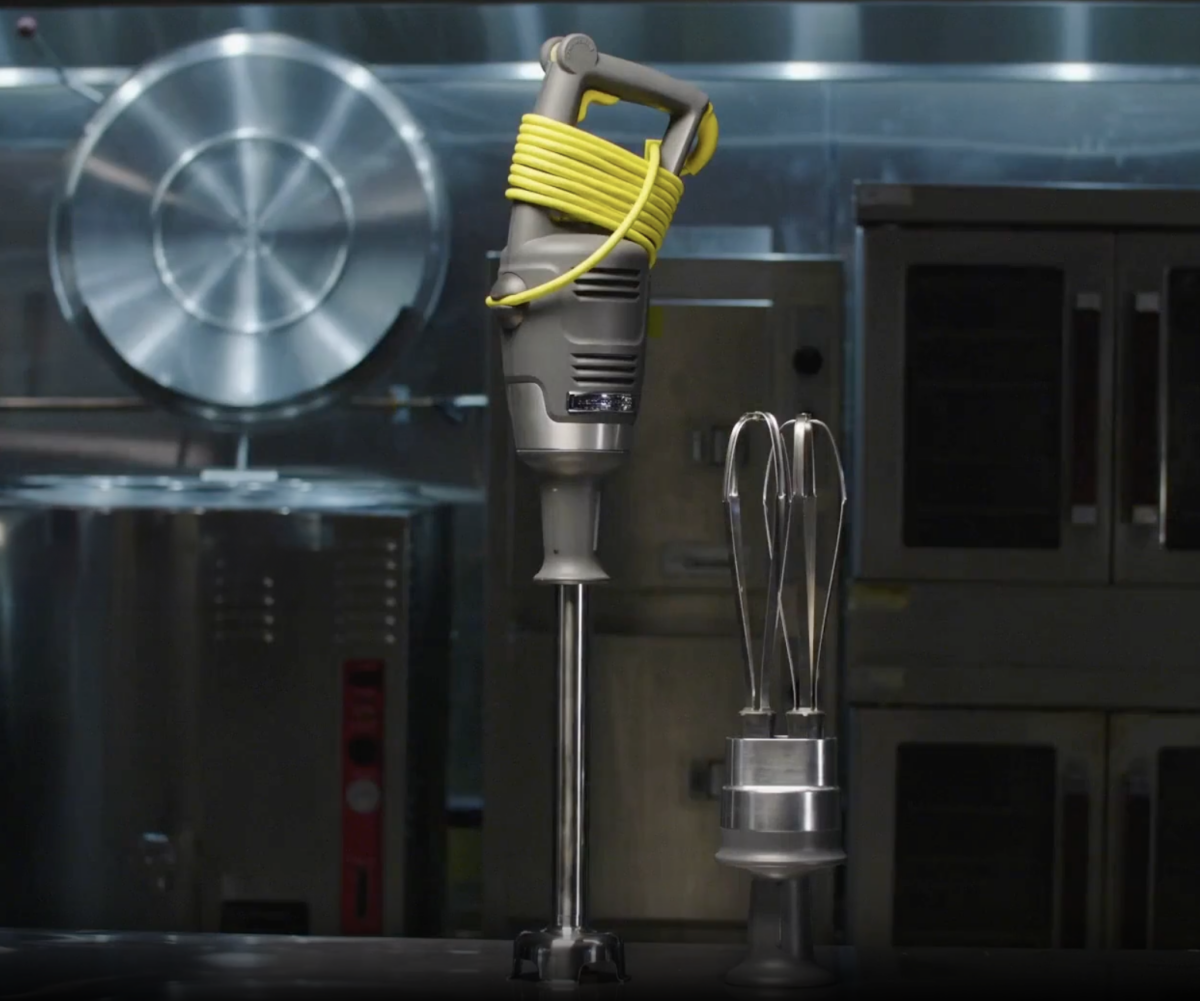
Whether you run a bakery, a commercial production facility, or a restaurant, you’ve probably got a mixer in your “mix” of needed kitchen equipment. From stand mixers to hand mixers, a reliable commercial mixer saves you time (and a whole lotta elbow grease).
But if you’re overwhelmed by the different kinds of mixers on the market, we’ll break it down for you. Find the right size commercial mixing machine that meets the needs of your kitchen staff.
Friend or Dough? Types of Commercial Mixers
These four types of commercial mixers are anything but basic. Here’s how they each compare:.
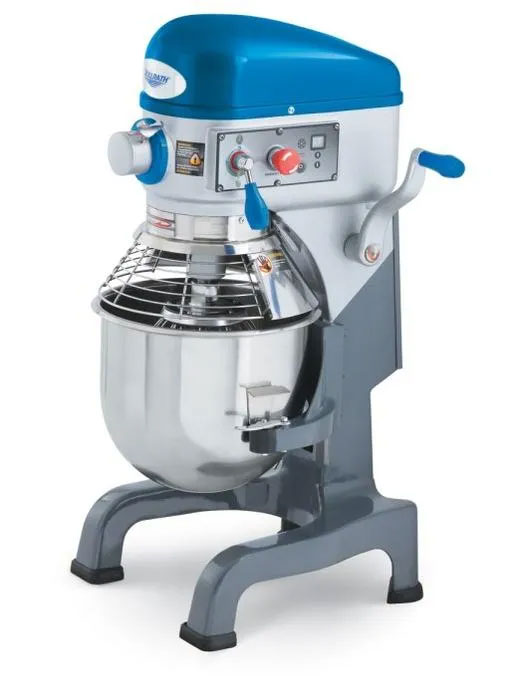
Stand Mixers: Stand mixers are the stalwarts of your kitchen countertop. These commercial cake mixers are robust, reliable, and good for every task, from whipping cream to kneading thick dough. With available attachments, a stand mixer can be adapted to make pasta, grind meat, and even churn ice cream. Commercial stand mixers feature powerful motors that can tackle tough tasks and stand up to the heavy use of a bustling kitchen.
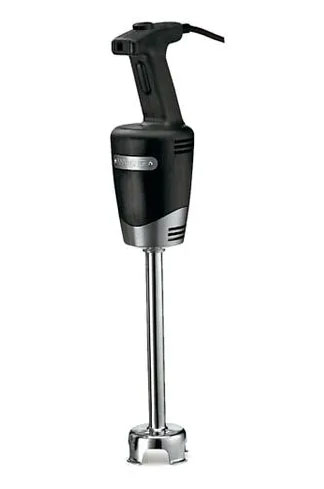
Hand Mixers: Similar to your home hand mixer, commercial hand mixers are portable and versatile. They’re ideally suited for small kitchen tasks—finishing and whipping ingredients when a bulky machine would slow you down. Hand mixers are great for small batches and quick tasks. They’re easy to store. Commercial hand mixers feature different speeds and attachments, and they come in very handy in a pinch.
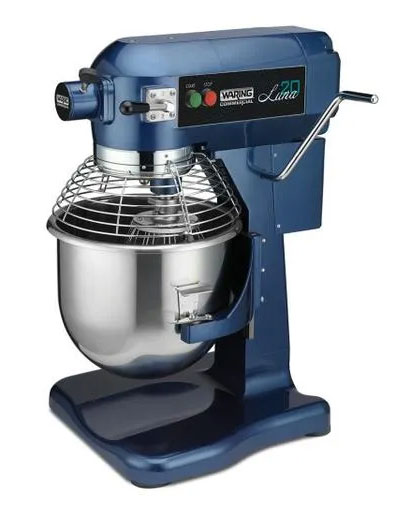
Planetary Mixers: Planetary mixers are the multipurpose workhorses of the kitchen. The mixers received their moniker due to the way the mixing attachments orbit a bowl while simultaneously spinning in the opposite direction. This unique mixing style works for cake batter, bread dough, and everything in between. Attachments like paddles, dough hooks, and whisks make these a must-have for large-scale production.
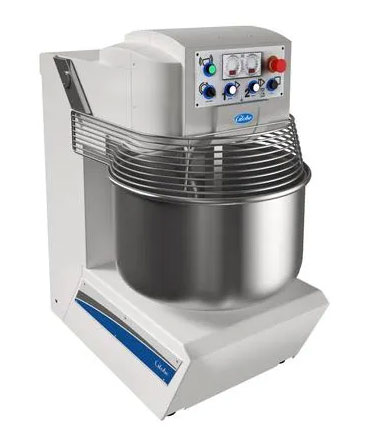
Spiral Mixers: Spiral mixers are especially loved by pizzerias and bakeries, thanks to their unique design that kneads the dough even better than by hand. The spiral agitator of this commercial flour mixer stays in one place while the bowl rotates. Spiral mixers help preserve the dough’s structure and temperature for optimal fermentation and gluten development. If you need to make large batches of pizza dough or bread, a spiral mixer will help you get the perfect texture every time.
Applications in the Food Industry
When exploring the different types of mixers for your application, it’s important to match the mixer type to the task. Using the wrong mixer can strain the equipment, under- or over-mix food, and take up valuable kitchen space. In other words, you might not need a big stand mixer if baking and desserts aren’t your thing.
Commercial mixers, especially stand mixers, are almost always a must-have for high-volume baking and cooking. A good commercial mixer helps you maintain quality control and consistency. Spiral and planetary mixers are often a good option for large operations where your heavy duty mixer works overtime.
For specialty applications like pizzerias, pastry shops, and restaurant kitchens, you may require a specialized mixer to achieve the perfect pizza crust or delectable pastry texture. A spiral mixer will handle tough pizza dough without fuss, whereas a delicate meringue may call for a reliable hand mixer.
Choosing a Commercial Mixer
When choosing the best commercial mixer for your kitchen, there are several factors to consider.
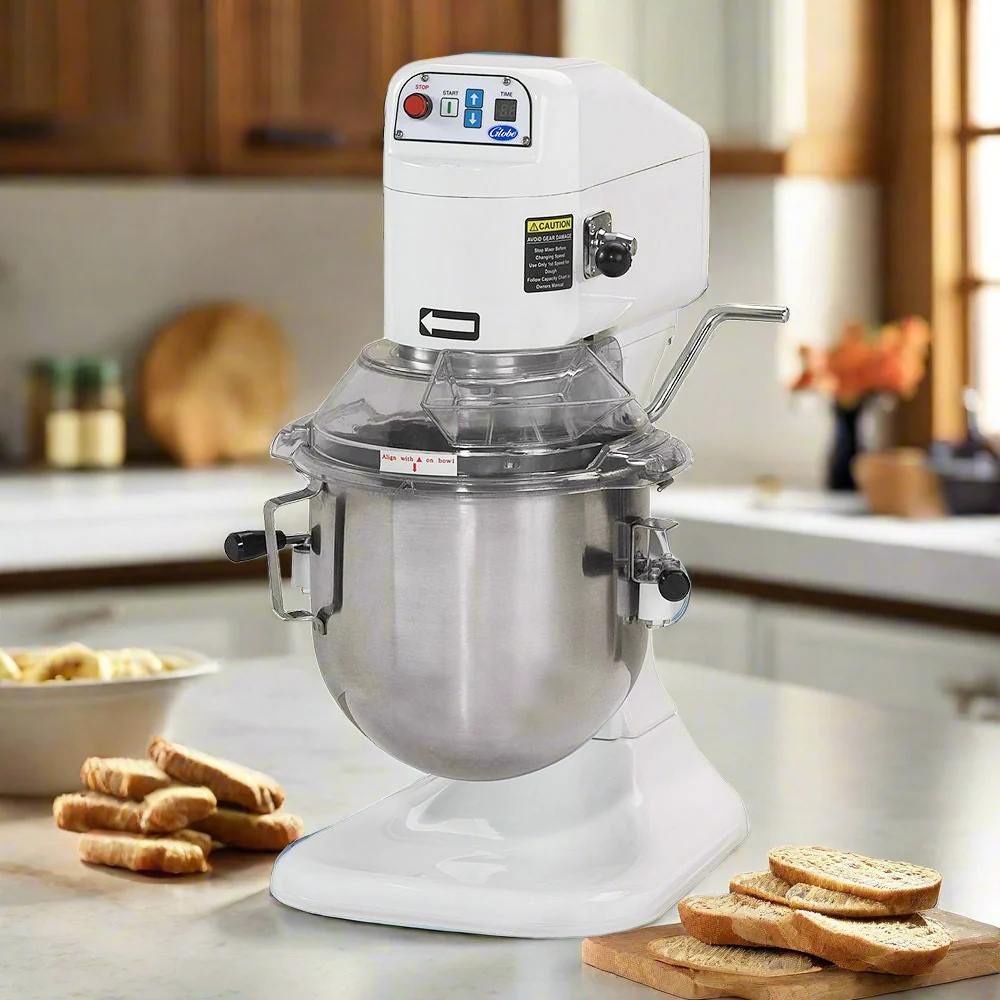
1. Adaptability
The right mixer should be adaptable to your kitchen’s needs and a piece of cake to use. That means offering the right expansion accessories, power levels, and speed control to create as many dishes as possible with the smallest footprint.
2. Variable Speed Controls for Precision Mixing
Are you feeling the need for speed? Having speed control means precise results. Whipping ingredients requires a different speed compared to combining ingredients or folding in components. Speed control protects texture from over- or under-mixing.
3. Sizing Capacity
Is the mixer large enough to meet your kitchen’s output requirements? Multiple batches are time-consuming. At the same time, a mixer that’s way too large for a small task is inefficient to clean and maintain.
4. Motor Power
How much motor power does the mixer offer? It needs to be strong enough to handle the densest, heaviest mixes without straining. It’s especially crucial for dough and thick mixtures that call for more torque.
5. Build Quality
We always encourage you to invest in the highest-quality kitchen equipment you can afford. You get what you pay for, and it’s better to spend your dough on a high-quality brand with stainless steel components and sturdy gears built to last.
6. Protective Features
Large commercial mixers should feature overload protection and stopgap features that prevent malfunctioning and overheating. Accidents happen; your mixer should have features to keep you and your kitchen staff safe.
7. Ease of Maintenance & Upkeep
All kitchen equipment should be built with the needs of a commercial kitchen in mind—often, that means it should be easy to clean and easy to maintain. The industrial mixer needs to be sanitized regularly, and components must be readily available should you need a repair. Remember, if it ain’t broke, mix it.
A good mixer can last many years, even with heavy regular use. Make sure your commercial mixer has plenty of power and standard features to meet your kitchen’s current (and future) needs. You want culinary equipment that can grow with your business.
Mixer Size and Capacity
As with almost every piece of commercial equipment in your kitchen, a mixer needs to hit the right balance. Unless you’re lucky enough to have a huge kitchen, you likely need something that doesn’t take up a lot of floor or countertop space.
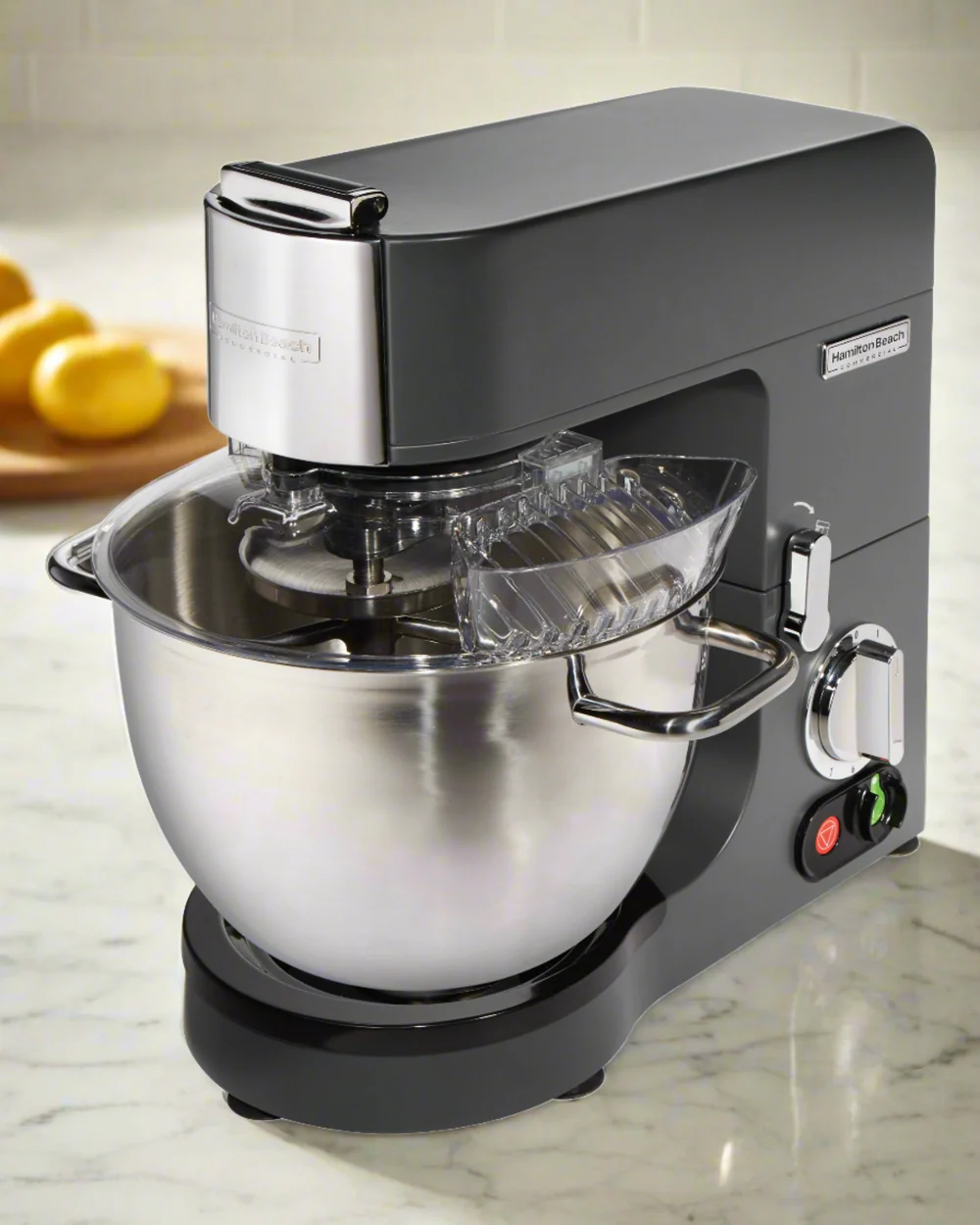
As for the question of floor mixers versus countertop mixers, it all depends on the layout of your kitchen. If you need high-volume mixers (or multiple mixers), you’ll need somewhere to keep them that won’t eat up your valuable kitchen prep space. The mixer should be easily accessible, but it might not need to be front and center (depending on your needs).
Consider bowl capacities as well. Some mixers, especially larger commercial mixers, have a built-in stainless steel bowl with a bowl lift. This makes them ideal for the rigors of commercial use and large batches of dough. But if you need something for one-time use or a specialty project, you won’t want to put it all in the huge bowl.
At the same time, the mixing capacity has to meet your operation’s volume. You don’t want to get stuck in the weeds with multiple batches of unmixed dough. Look for a mixer that can handle your volume requirements, even on your kitchen’s hottest and heaviest days.
Stand Mixers vs. Hand Mixers: Which One Does Your Business Need?
One of the big questions is whether to buy a stand mixer or a hand mixer. When comparing the two, you’ll need to consider many different factors, including power, capacity, practicality, and efficiency.
Hand mixers are generally less powerful than their standing counterparts. These mixers are designed for light tasks like beating eggs or whipping cream. The capacity is also low and suited to small batches. A hand mixer wouldn’t work for heavy dough or large-volume needs.
A stand mixer has a more powerful motor and can handle challenging tasks like mixing thick batter or kneading bread dough. Of course, stand mixers have a wide range of capacitiescapacity, so look for something that can handle your largest batch (remember that dips, spreads, sauces, dressings, and even meatloaf can require a mixer, too)!
For a small kitchen, a hand mixer is compact and easy to store. When space is at a premium (and baking tasks are at a minimum), a hand mixer won’t take up that all-important counter space. Tuck them away until needed.
Although larger stand mixers might take up more space, they offer more versatility and power. Sometimes, those advantages can drive even small kitchens toward the stand mixer option. Because they come in a variety of sizes, it’s easy to find the best mixer for your kitchen.
In a large kitchen, the question may seem like a no-brainer. A stand mixer offers the necessary power and capacity for high-volume and consistent production. That said, sometimes, a quick, small task may be much easier with a hand mixer. If you have the room, we say opt for the stand mixer but tuck away a hand mixer as a backup.
Planetary vs. Spiral Mixers
The question of planetary versus spiral mixer also frequently comes up in a commercial kitchen. The answer largely hinges on your menu. Each mixer has strengths for particular tasks.
Planetary mixers have a stronger reputation for versatility. Many planetary mixers offer a variety of attachments, such as whisks, paddles, and dough hooks. They can do it all!
Planetary mixers are ideal for kitchens that have a variety of items that need to be mixed—like a bakery that makes cookies, cakes, and breads or a restaurant that needs to make sauces, mashed potatoes, and bread dough. If you’re seeking a multitasker, a planetary mixer is likely the better and more adaptable choice.
Spiral mixers are a more specialized machine. When it comes to doughs for bread, pizza, and bagels, these commercial dough mixers really can’t be beat (or rather, they CAN beat exactly what you need). The spiral hook and rotating mixing bowl knead dough gently while keeping the temperature consistent, thanks to minimal friction.
For pizzerias, bakeries, and restaurants with yeast-leavened products, a spiral mixer helps keep the gluten structure intact. Spiral mixers can often handle large quantities of dough, so they’re good for high-volume kitchens.
If you need to pick one and are torn between the two machines, stop and assess your menu. If you need something that can perform a variety of tasks, you’ll want a planetary mixer. If your menu has a high volume of bread and dough, a spiral mixer will give you consistent results every time. If it’s a question of space and budget, planetary mixers might be more advantageous.
Maintenance Tips for Longevity and Consistent Performance
It’s no secret that commercial equipment takes a beating (even when it’s doing the beating, too). Proper maintenance is crucial for protecting your investment, preventing breakdowns, and getting consistent, high-quality results. Some key maintenance tips include:
- Always read and follow the manufacturer’s instructions.
- Clean, clean, clean—hardened food can cause damage and contamination (oh, and be sure to unplug it first)! Clean it after each use.
- Use only manufacturer-recommended cleaning agents for your mixer’s components.
- Don’t neglect those attachments and accessories.
- Regularly check and tighten attachments and agitators to avoid misalignment.
- Lubricate the moving parts with food-grade lubricant, per the manufacturer.
- Perform visual inspections before each use for worn gears, belts, fraying cords, and other signs of damage.
- Stop, look, and listen to your mixer to note any changes.
- Schedule a professional cleaning and calibration.
- Keep the mixer on a level service.
- Always train staff on the proper use of the mixer (and all commercial equipment).
Brand Comparisons
At Eleven36, we carry commercial mixers from the top industry brands, so our customers always have access to the best of the best.
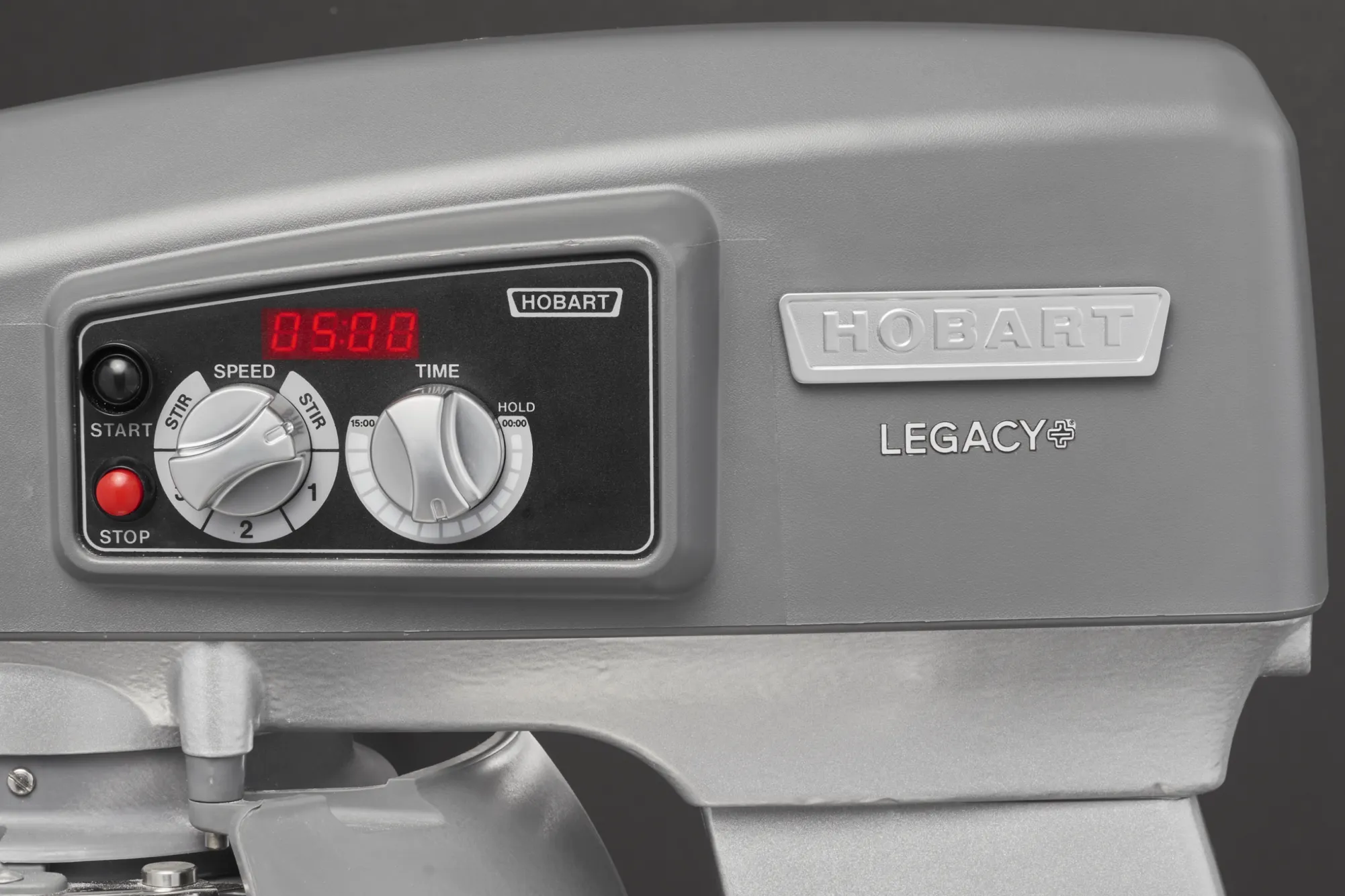
The top brands of commercial mixers include:
- Globe: Globe is an industry-leading brand known for gear-driven, high-torque transmission equipment. Globe mixers are especially ideal for heavy doughs and large volumes.
- Hamilton Beach: Hamiton Beach is a good, affordable choice if you’re looking for a user-friendly commercial mixer. These mixers are often suited to smaller-volume operations like cafes and restaurants.
- Hobart: The Hobart name is synonymous with commercial mixers. It’s well known for long-lasting, well-built equipment. Most Hobart products include advanced safety features and a range of attachment options.
- Robot Coupe: Robot Coupe got its start in the industry with food processors, applying that same design precision to mixers. Their mixers are often compact and sleek, making them easy to clean and ideal for kitchens with limited space.
- Vollrath: Vollrath is known for precision. Digital timers and control panels are ideally suited for applications that require consistency every time. These mixers are often used in specialty bakeries and culinary schools.
- Waring: Known for a range of easy-to-use and durable mixers. Waring mixers typically have heavy-duty motors and variable speed settings, ideal for nearly every task, from light whipping to robust kneading.
Accessories and Attachments
If you want to do more with your mixer, explore the available add-ons to expand your mixer’s capacity. You may need additional attachments, whisks, paddles, and specialized features like meat grinding and pasta making. Many commercial mixers can be adapted to perform all sorts of tasks.
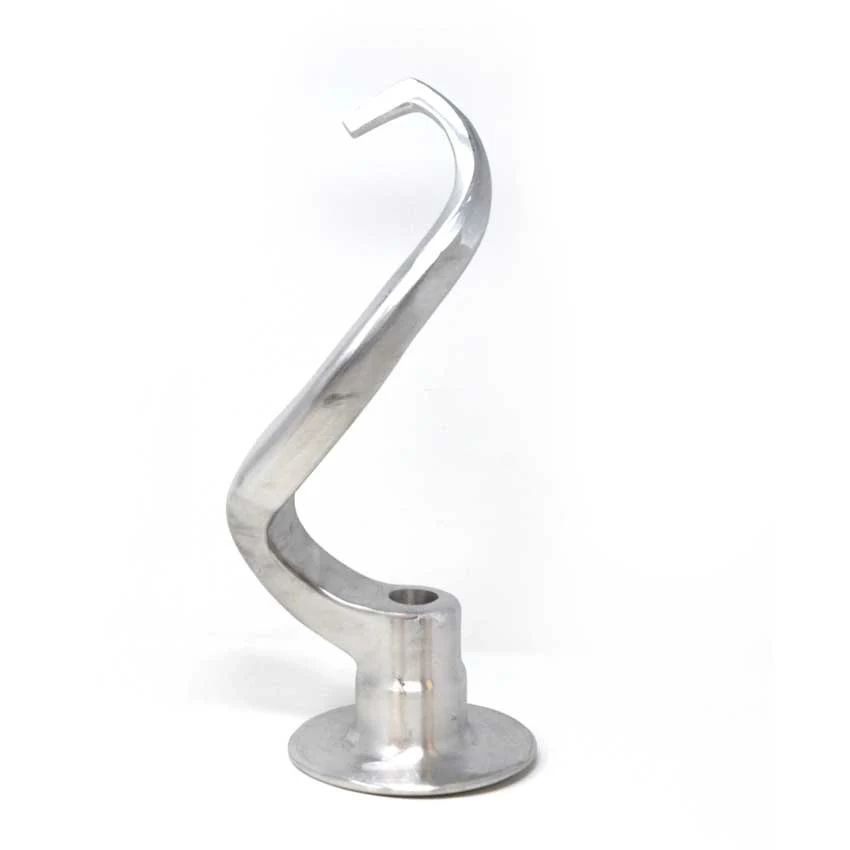
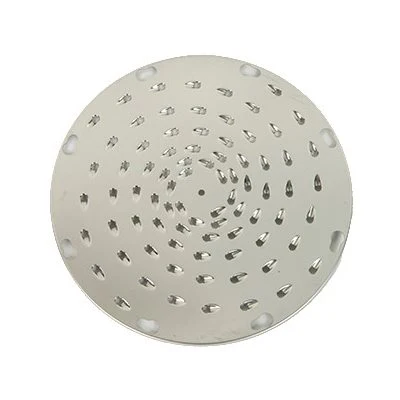
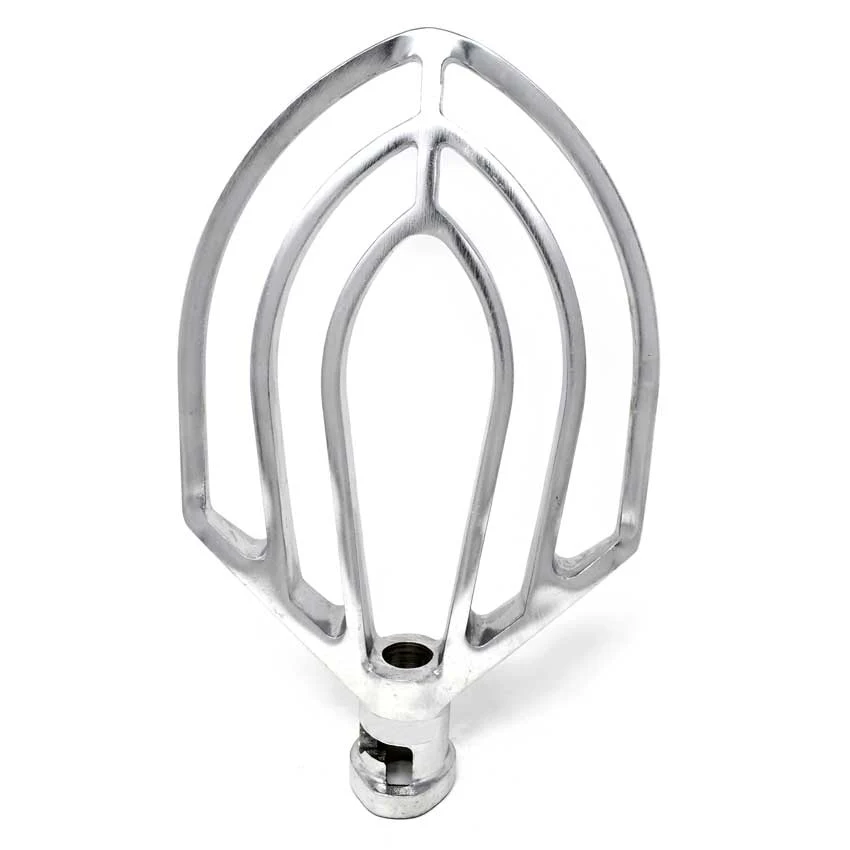
If you’re trying to decide on a mixer, consider the available accessories too. For example, an Italian restaurant may get more with an option that features a pizza dough hook and an optional pasta maker.
By choosing a mixer that has compatible attachments available, you’ll expand your options and get more bang for your buck.
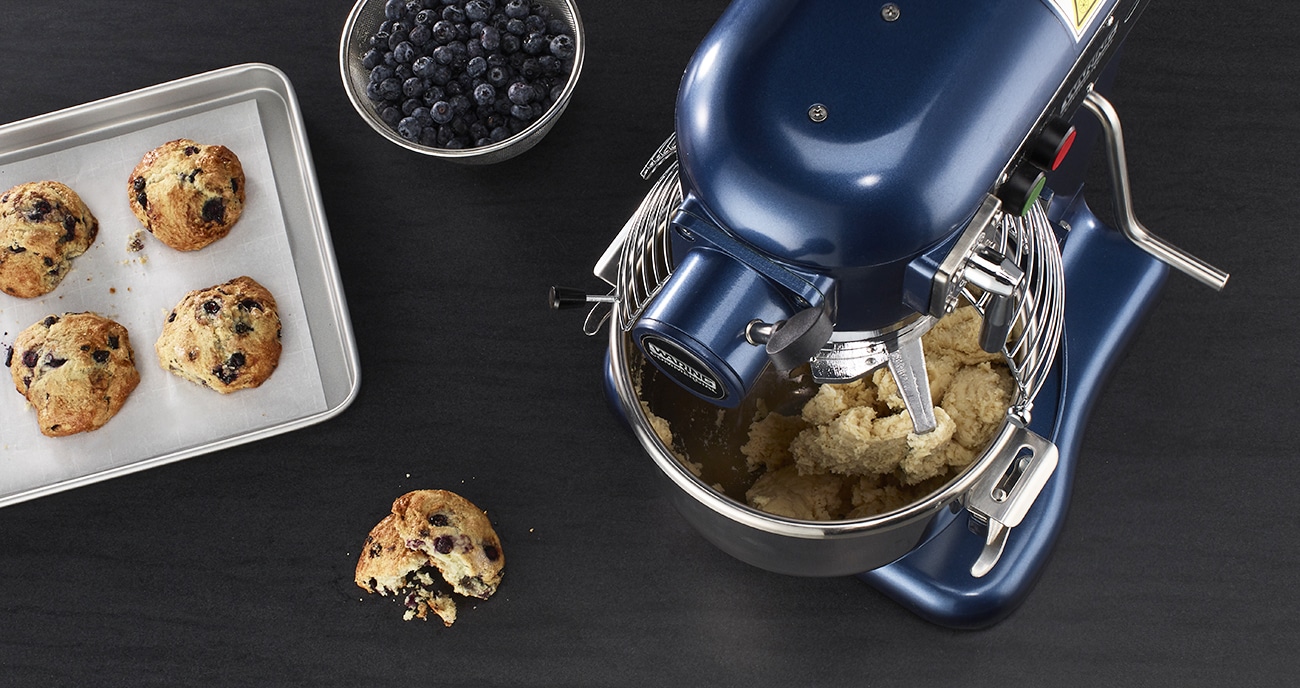
Get The Perfect Mixer at Eleven36
No matter what you’re looking for in a mixer, you’ll find your perfect match at Eleven36. Mixers are a standard piece of commercial kitchen equipment, and so, OF COURSE, we carry a huge array of options.
While there’s a lot to choose from, don’t let choice paralysis take over. Assess the needs of your menu (and your menus in the near future). Compare the volume, capacity, and footprint to the size of your kitchen space. Aim for that balance of commercial mixer that’s strong enough to do the job but small enough to stay out of the way.
If you need assistance with your choice, don’t hesitate to reach out. We’re happy to walk you through the ins and outs of choosing your perfect commercial mixer.
